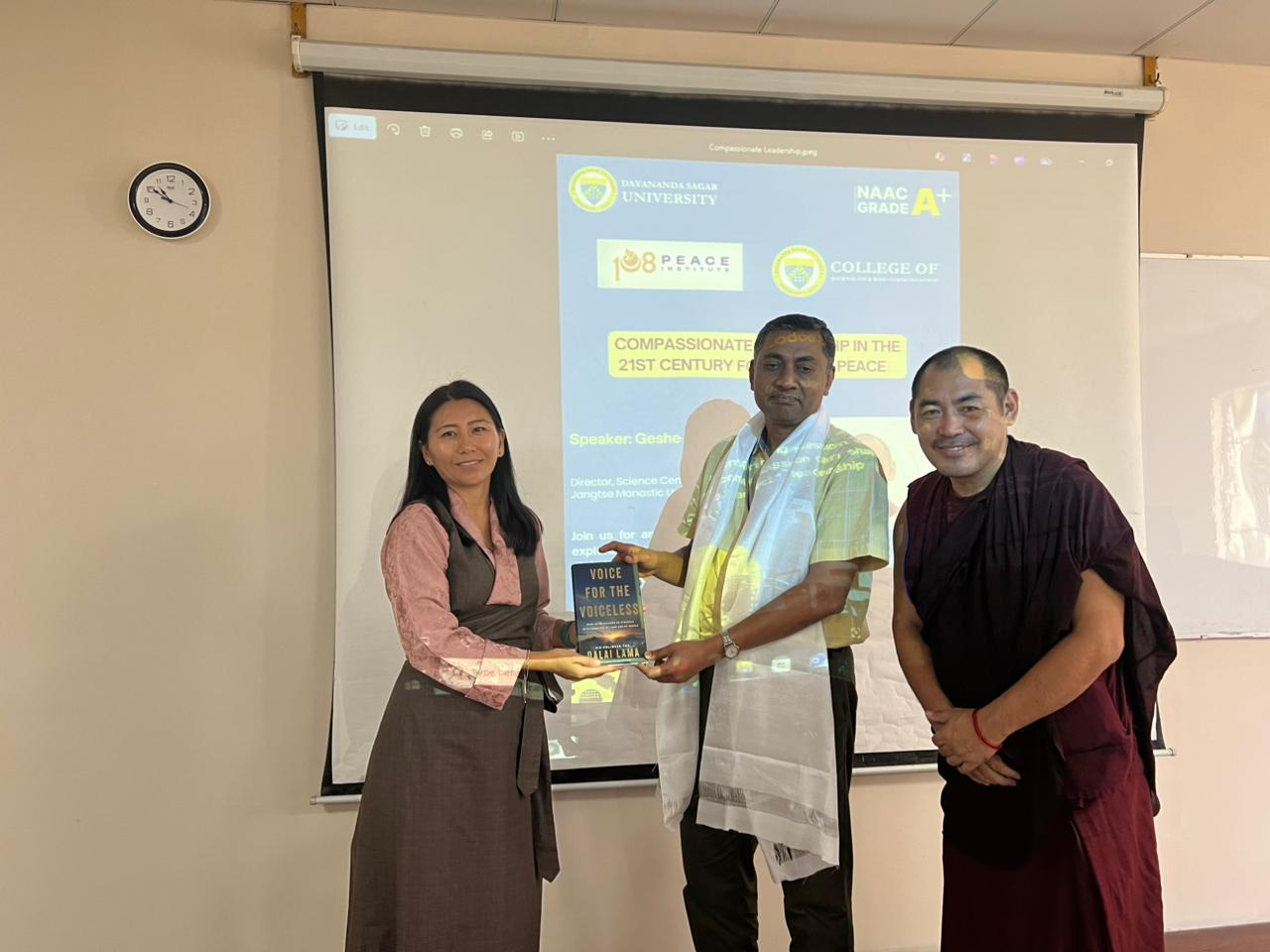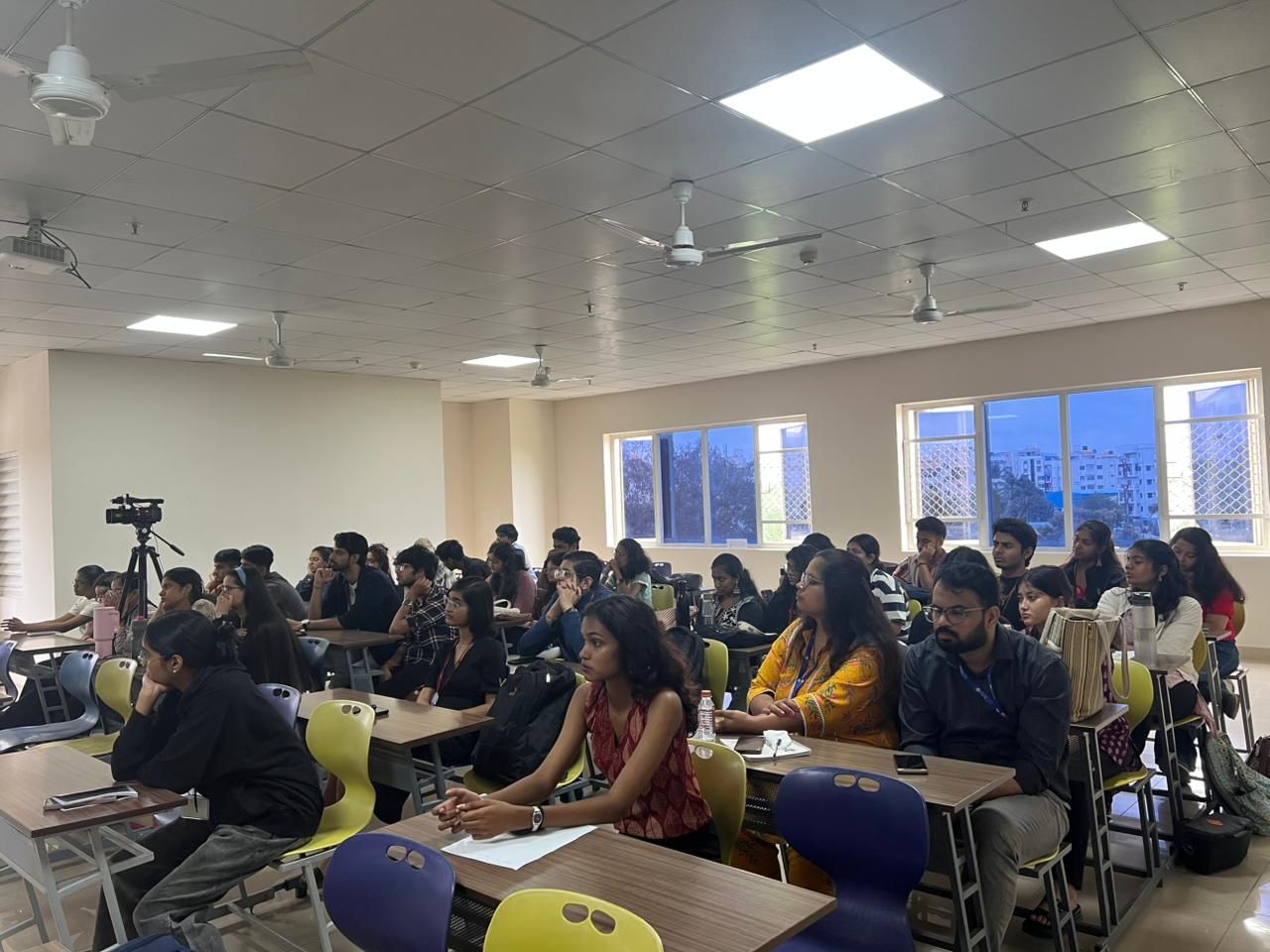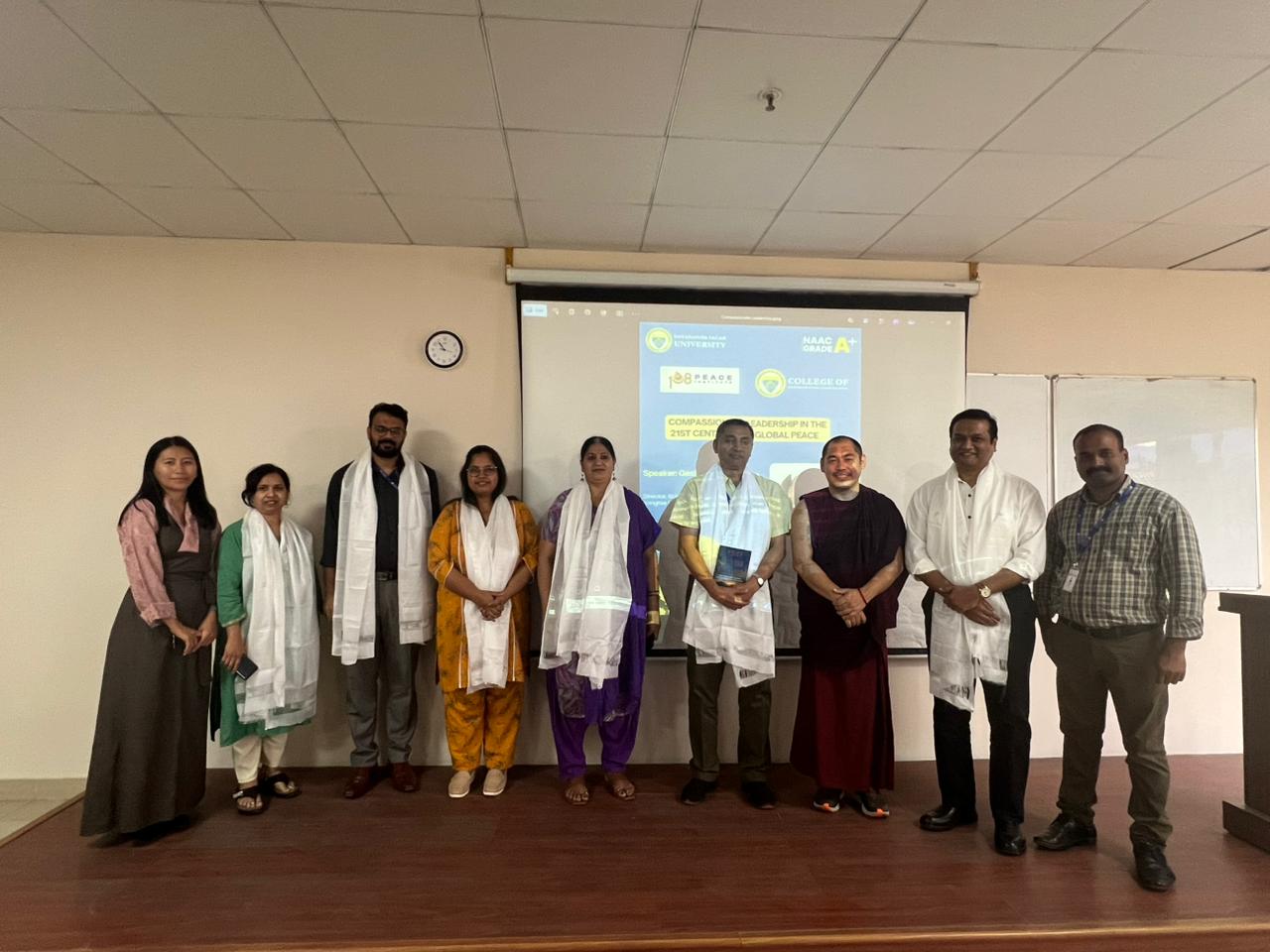August 19, 2025: 108 Peace Institute in collaboration with the College of Journalism and Mass Communication (CJMC), Dayanand Sagar University, Bangalore, hosted a lecture session on “Compassionate Leadership in the 21st Century for Global Peace”. The lecture session featured Geshe Lodoe Sangpo, Director, Science Center, Gaden Jangtse Monastery, Karnataka.
The session began with opening remarks by Dr. K Sai Prasad, Dean and Professor, CJMC , Dayanand Sagar University, underscoring the importance of compassionate leadership in today’s chaotic and rapidly changing world.
Geshe Lodoe Sangpo delivered a compelling session rooted in the teachings of His Holiness the 14th Dalai Lama, urging the cultivation of compassionate leadership in a world shaped by rapid technological and societal change.
Geshe la began the lecture with a guided meditation on compassion, setting a reflective tone for the session. He then delved into the meaning of compassion, drawing a key distinction between empathy and compassion — while empathy is the ability to feel another’s suffering, compassion moves one to alleviate it.
To illustrate the power of compassion on the human mind, Geshe-la referenced scientific research by Dr. Tania Singer, a renowned German neuroscientist. Her study on Matthieu Ricard, a French Buddhist monk, found that meditation on compassion activates the brain’s positive/reward regions, suggesting that cultivating compassion not only benefits others but also enhances personal well-being.
Throughout the session, the life and teachings of His Holiness the Dalai Lama were a central focus. Geshe-la reflected on the resilience of His Holiness in the face of illegal occupation of Tibet by the Chinese Communist Party. Forced into exile in India, His Holiness led the monumental effort to rebuild the Tibetan exile community from the ground up, with a steadfast commitment to preserving its rich culture and traditions—particularly the profound teachings of the Nalanda Buddhist tradition, rooted in ancient Indian wisdom.
Geshe-la described His Holiness the Dalai Lama’s leadership style as deeply compassionate, rooted in loving-kindness and moral courage. Despite facing unimaginable challenges, His Holiness has never turned to violence or vengeance. Instead, he continues to serve as a global voice for peace, nonviolence, and universal responsibility.
Citing iconic leaders like Mahatma Gandhi, Nelson Mandela, and Mother Teresa, Geshe-la emphasized that true leadership is not driven by ego or power, but by responsibility, humility, and deep care for others. Each of these figures overcame hardship by embodying compassion and love in action.
Compassion as a Universal Human Value
“Compassion is not limited to any religion,” Geshe-la said. “Even animals show compassion — especially mothers toward their offspring.” Geshe la emphasized that compassion is not confined to one’s family or friends — it must be extended to all beings, reflecting a deep awareness of interdependence and shared humanity. He reminded the audience that more than 98% of human genetic makeup is identical and that everyone seeks happiness and avoids suffering. Recognizing this oneness of humanity helps dissolve barriers and strengthens global responsibility.
The Need for a Compassion Revolution
As the world races through the Industrial and AI Revolutions, Geshe-la issued a heartfelt call for a Compassion Revolution. He urged participants to make a conscious effort to cultivate compassion through analytical meditation, loving-kindness practices, and daily reflection on interdependence. True transformation, he said, begins with shifting our mindset — from self-centeredness to a shared sense of belonging and care.
“Compassion is the magnet that attracts all other positive qualities,” Geshe-la explained. “It builds trust, strengthens mental health, and brings meaning to our connections with others.”
The session concluded with a vibrant Q&A segment, where participants engaged in thoughtful discussions on the practice of compassion and how to overcome the challenges that often arise in embodying it in daily life.
Around 50 participants including students and faculties attended the session.


